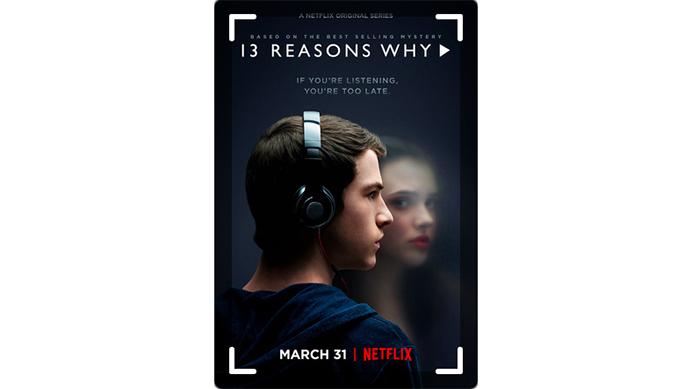It’s almost impossible for today’s youth to be blind to the devastations of bullying, sexual assault, and mental illness, especially when these issues are brought to the forefront of youth television.
The Iowa City Public Library hosted a discussion addressing the issues of the popular Netflix Original series “Thirteen Reasons Why” and attempt to make sense of the show’s dark themes.
“Thirteen Reasons Why” focuses on the events leading up to the suicide of a high-school girl, Hannah Baker.
Hannah left behind 13 tapes that each detail a reason and person who she deems responsible in her decision. The reasons include false rumors, bullying, victim blaming, and rape. The show pieces together this narrative of traumatic events that conclude with the final graphic scene of Hannah committing suicide.
The highly publicized show débuted this spring and became an instant hit among young audiences. The show surrounding mental illness accumulated a massive number of fans who wanted to see the actors all over talk shows and magazines. People could not get enough of these 20-somethings who portrayed the riveting and heartbreaking story of teen suicide.
However, this obsession over “Thirteen Reasons Why” concerned parents and health experts. Many claim that the high production value, beautiful actors, and enticing plot structure led to a romanticism of mental illness and failed to address how to cope with the issue.
Many students were left feeling traumatized, and there were even instances of copycat suicides. School districts nationwide, including Iowa City’s, sent emails to parents describing the show and offering guidance for anyone struggling with the show’s explicit, dark themes.
“[The show] brings up these topics that youth and people in general are dealing with,” said Katie Ferring, a crisis-intervention program coordinator at the Johnson County Crisis Center. “But it kind of leaves them hanging there, so people are stuck with that without being able to talk about it.”
Others commend the show for opening a discussion about mental illness and depicting the harsh consequences that people’s actions can hold. Areas in which the show failed to explain mental illness can be brought up between parents and friends. This is what Iowa City organizations are planning to provide for community.
“Whether or not that you like the show, I do like that we are sitting here having this conversation,” said Tristin Johnson, a health educator at United Action for Youth. “It’s giving us the chance in the work that we do as prevention educators to get people to talk about and relate to some of these issues — rape culture, slut shaming, suicide prevention.”
RVAP, the Johnson County Crisis Center, and United Action for Youth have collaborated on a workshop that address sexual assault, suicide, and bystander intervention. The organizations will introduce themselves, present what resources they have available, and lead a discussion over one of those three topics. People of all ages will have an opportunity to discuss their thoughts on serious issues, using the popular show as a reference point.



